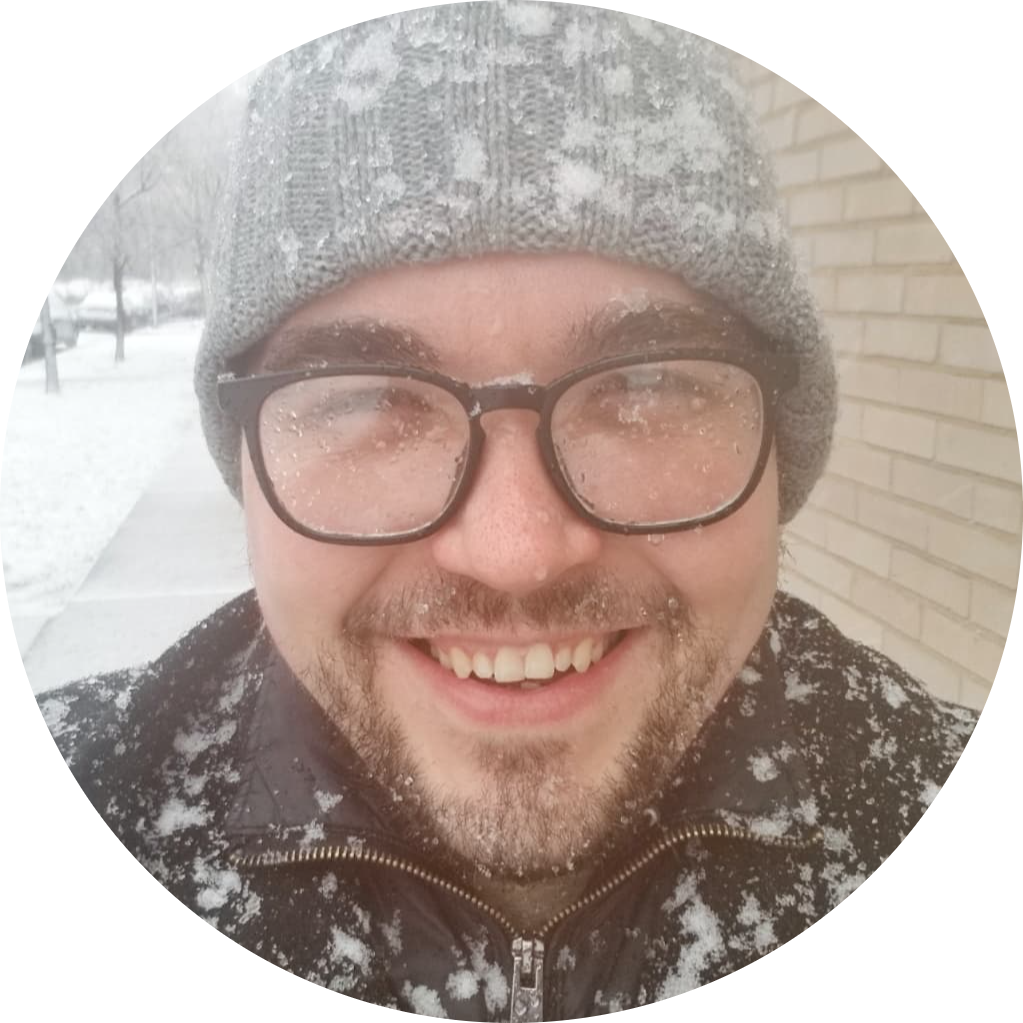You can still hear the voices from before. The way you and your dad rigged up the old PA system, got the music playing again, sat and let the notes carry through the dead shopping mall. The broken skylight, sun coming in, vines snaking and low enough for you to take a running start, jump, grab and swing when it was a long day and low on food and you and Mom and Dad could use a little light entertainment.
Dad found an old bike in a woodchip park nearby, and though it was mostly rusted—tire rubber burnt and flayed on the rim, and you couldn’t see how it’d ever function again—Dad only saw his own bike from the beforetimes, the gleaming metal of the frame, and the cards he said they’d clip just so for the spokes to hit and give the illusion of a motor. And the tricks they’d pull, he said, and the scars he could show you when the tricks didn’t go so well.
So you scavenged for parts, and Mom painted all the walls in the whole shopping mall, put down record of all the living things that had ever existed and even some that hadn’t, the menagerie of life, before the glow set in and made the world you now know.
Dad made you an automaton friend. Nothing too advanced but enough to stand in for the friends you weren’t able to make, something you could teach to walk alongside your bike, then run when it got the coordination down. You collected knee scrapes and bloody elbows on bike falls as your metal friend scuffed paint and dented aluminum trying to keep up with you, to catch you when you’d fall.
The shopping malls are all dead now, and it isn’t like they weren’t before, but there’s no Mom around to breathe life back into them. They’re just walls and a ceiling, windows and a floor. You can almost see the way the night fire would light up the paintings back then, and the stories Dad would tell, the ones he could speak but could never write down, and when the glow was low you could see the stars peeking past the smoke as it wisped up and out the broken skylight, and Dad said one day he’d build you all a rocket ship. It wouldn’t be much, not like the stalled starliners of the beforetimes, but it’d work just the same, and he’d take you all out of here, away from the glow and the loneliness and the broken everything and you’d find a new home up there, one day, somewhere warm and cozy where you could start over, and it got so the coldest, hungriest nights were filled with the tallest of tales, but those nights you could count on dreams of a makeshift rocket blasting up and through the mall’s skylight, out and past the glow, past the sky, shooting true and into the stars. Those dreams were the best, even if you woke from them with an empty stomach and numb toes, ears red and nearly frostbit.
Your automaton friend took to patrolling just outside the mall’s walls most nights, standing guard for your family, but especially for you. There wasn’t much he could do if there was danger besides wake you. But he insisted that he stand guard, that he repay you and Dad for the life you’d given him. So you left him to it.
You were nine years old when you saw your friend broken to bits and left to twitch on the ground, frost gathering on metal in the early morning cold. When you yelled, it was a sound that came outside of you, and Dad ran over, Mom too. Your friend’s metal head was nearly severed from the body, hanging by a ribbon cable and a couple of wires. Some scavver had made off with most of the body, arms and legs removed, vital components in the chest yanked out. Whoever they were, something had at least kept them from stealing the still-blinking head.
You cried during the entire operation that followed, and even though your friend told you it was okay, that he wouldn’t need a body as long as he had you, you couldn’t help but feel like it was all your fault.
The salvage successful, you asked your dad to add a basket to the front of your old bike. If your friend couldn’t run alongside you, he could at least ride along.
You’re back now, twenty years to the day since you left, with your pack out in front of you, and the glow is low today, mercifully so. Mom and Dad are just a burning memory, but this dead shopping mall still stands. You reach into the pack, find what you’re looking for. Who you’re looking for. The primary colors of youth are gone, but you can almost remember them as your old friend opens his eyes and looks out at his birthplace: the building where so much was taken from both of you, the building where everything was given. You try to frame it in a broken skylight in your mind, to keep its bigness small: so much smoke trailing away out and to the stars. Sometimes you wonder if the world’s so small, or if it’s so big you can’t stand it. You can’t decide which, but you don’t need to make up your mind just yet.


Nick Olson (he/they) is the author of the novels Here’s Waldo and The Brother We Share and is the Editor-in-Chief of (mac)ro(mic). His third novel, Afterglow, will release in June of 2022. A Best Small Fictions nominee, finalist for Glimmer Train’s Very Short Fiction Award, and 2021 Wigleaf longlister in and from Chicagoland, he’s been published in SmokeLong Quarterly, Hobart, Fiction Southeast, and other fine places. Find him online at nickolsonbooks.com or on Twitter @nickolsonbooks.
Header photograph and artwork by Jordan Keller-Wilson
